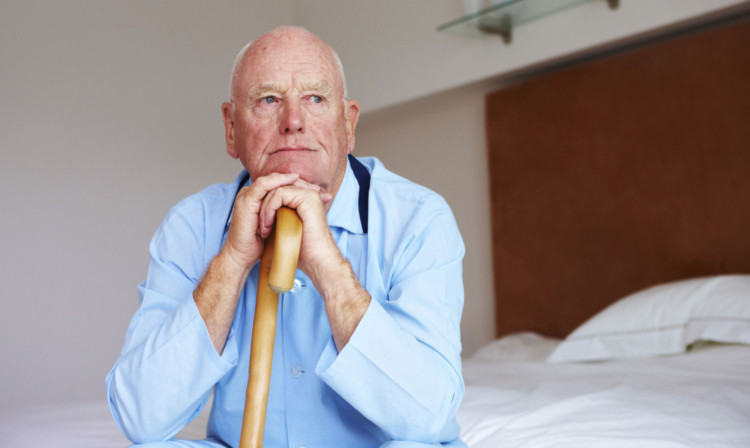
Complaints about care provided in people’s homes rose by a quarter over the last year, while those about care homes increased by a fifth, a new report says.
The Local Government Ombudsman (LGO) received 2,969 complaints and enquiries about adult social care in 2015/16, up 6% on the previous year.
Of those, there was a 21% rise in complaints about residential care homes, while complaints about home care rose by 25%.
The report comes after the King’s Fund warned earlier this week that councils could face legal challenges from families for failing to provide good quality and appropriate care to the disabled and elderly.
The LGO found themes across the complaints it received on home care, including staff failing to turn up, being late, not staying long enough or cancelling visits
Some people received visits from too many different carers, while there was also poor record-keeping.
When it came to residential care, the LGO found one patient with dementia ended up dehydrated because he was not given enough to drink. Medical attention was then delayed because the care home had not registered him with a GP.
The report said: “When the provider responded to David’s daughter, who made the complaint on his behalf, the explanations about the care her father had received could not be backed up by records or other evidence.”
The report said the rising number of complaints about social care “may be indicative of the pressures the sector is experiencing”.
It added: “We know that there are significant and increasing pressures on all areas of adult social care, and not least the home care market.
“Problems with recruitment and retention of staff, the introduction of the national living wage, and underfunded and over-stretched services have been well documented.”
The report said the complaints revealed that the quality of care delivered to people “often falls below the standard expected”.
It said that funding pressures “do not excuse poor practice”, adding: “Respect for individual preferences around food and drink, what to wear and when to get up and go to bed are important to any individual and become emphasised when a person is not able to do these things independently.”
Of the 2,969 complaints received during the year, the LGO investigated 1,115 and upheld 58% overall, up on 55% the year before.
LGO Dr Jane Martin said: “Our complaints show that for people receiving care in their homes, it’s often the little things that mean so much to them in maintaining their dignity, independence and a good quality of life. Consistency of care is vital to those who rely on these services.
“We recognise the sector’s work signposting people to us may have had an impact on the number of complaints we received. However, we are still upholding nearly two thirds of home care complaints. This is too many.”
Janet Morrison, chief executive of older people’s charity Independent Age, said: “The sharp increase in complaints about adult social care is yet more evidence of a system in crisis.
“Home care is an incredibly important part of making sure that someone is able to retain their independence and stay in their own home. Inadequate home care can mean that older people lose the support they need for day-to-day tasks such as dressing or washing, and may be left to suffer in silence.
“This rise in complaints is the consequence of a care sector that is stretched to breaking point, with workforce gaps and a shortfall in funding impacting on the care many older people receive.”
READ MORE
Veterans express gratitude for Erskine charity support as it marks a century of care
12 days of care home hell: Woman with dementia fell twice and needed surgery after short stay

Enjoy the convenience of having The Sunday Post delivered as a digital ePaper straight to your smartphone, tablet or computer.
Subscribe for only £5.49 a month and enjoy all the benefits of the printed paper as a digital replica.
Subscribe